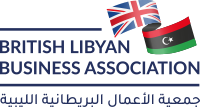I was pleased to have the opportunity to meet with Mr Khaled A. Elhouni, the Director of the Anti-Tax Evasion Department, today to discuss the important topic of the potential return of British companies to Libya. As the BLBA (British Libyan Business Association) CEO, I am responsible for facilitating and promoting business relations between the UK and Libya. This meeting was a significant step towards achieving that goal.
We discussed the steps that can be taken to address any outstanding issues and ensure that companies can operate in Libya with confidence. One of the main points we discussed was the legal and transparent process for companies with due tax obligations and payments to be made in Libya. We understand there may be concerns around these issues, and the process will be fair and transparent for all parties involved.
It was encouraging to hear Mr Elhouni’s thoughts on the matter, and we agreed that a collaborative approach is necessary to ensure that the return of British companies to Libya is successful. We discussed the importance of building trust and transparency and the need for ongoing communication and cooperation between our two countries.
During our meeting, Mr Elhouni gave me valuable insights into the Libyan tax system. He explained that the tax system was established in 1973 and underwent significant updates in 2004 and 2010. Since then, there have been minor updates to consider society’s evolving needs.
Mr Elhouni explained that the Anti-Tax Evasion Department is responsible for collecting all taxes promptly and fairly. The department works to prevent tax evasion and fraud and to ensure that all companies pay their fair share of taxes. All companies must know and understand the law or seek professional advice from someone who does. Transparency in company operations towards the Tax Authority is also crucial, enabling the authorities to support companies with their taxes clearly and transparently.
It was reassuring to hear that the main objective of the Anti-Tax Evasion Department is to support companies with their tax obligations and not to close or bankrupt them. Mr Elhouni emphasised that if a company is successful, this will generate more tax revenue for the state of Libya, which is a win-win situation for both the company and the country.
Mr Elhouni’s explained that in the past, some companies may have received misleading information that can cause significant problems for them in the future. Companies must ensure that they have accurate and reliable information on the tax laws and regulations of any country in which they operate. This will help them avoid future issues and maintain a good relationship with the Tax Authority.
As in many countries worldwide, the Libyan Tax Authority works slowly but proficiently, and past mistakes will catch up with companies eventually. This is why it is so essential for companies to be transparent and honest in their dealings with the Tax Authority. By doing so, they can avoid any penalties or legal action arising from non-compliance. Companies need to deeply understand Libyan tax laws and regulations before starting business operations here.
It was inspiring to learn that the Tax Authority of Libya started digitalising the tax system in 2020 and has made significant progress in streamlining its work and increasing efficiency. Digitalising the tax system is a positive development for the Tax Authority and companies doing business in Libya.
Moreover, digitalising the tax system will give companies greater transparency and clarity around their tax obligations. This will help to improve compliance and reduce the risk of non-compliance issues in the future.
Companies should strive to build relationships with the Tax Authority, other relevant authorities and Libyan Tax Advisors using the proper and recognised channels. This will help them to operate successfully in the country and maintain a positive reputation.
Overall, the meeting was productive, and the discussions we had today will help to pave the way for a successful return of British companies to Libya. The BLBA will continue to work closely with the Anti-Tax Evasion Department and other stakeholders to promote business relations between the UK and Libya.
In conclusion, I would like to thank Mr Elhouni for his time, and I strongly recommend that all companies follow Mr Elhouni’s advice and use the proper and recognised channels when doing business in Libya. By doing so, they can comply with the law, establish strong business relationships, and operate successfully in the country.
Alex Breingan
CEO
BLBA (British Libyan Business Association)


Great work, we are looking forward to see all the British companies in Libya again.